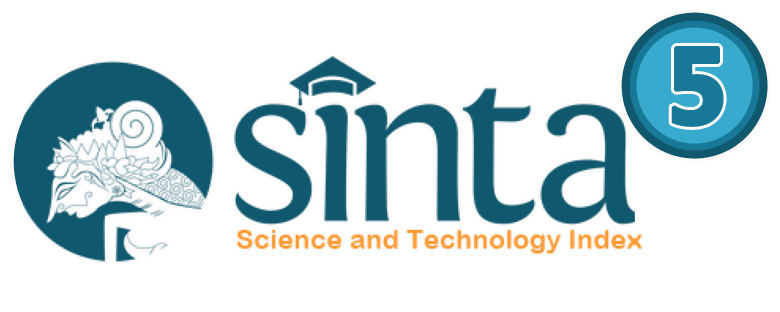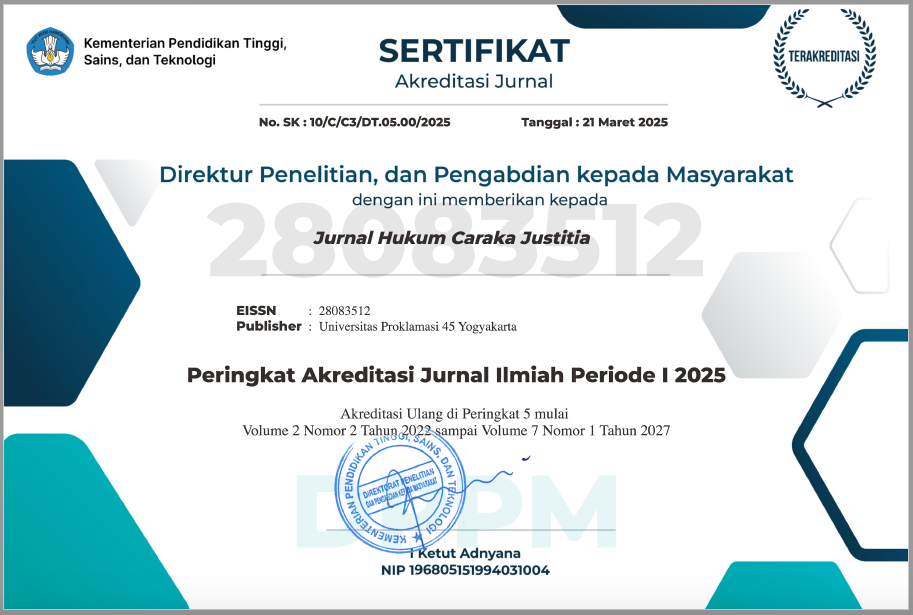PEMBAHARUAN DAN PROGRESIF DALAM EKSISTENSI PEMBINAAN HUKUM ISLAM SERTA PRANATA SOSIAL
DOI:
https://doi.org/10.30588/jhcj.v1i1.698Keywords:
Islamic Law, Social Institutions, Community Dynamics.Abstract
Islamic law has always been defined as a law that is religious and sacred, which replaces a durable law. Among the interesting questions about the adaptation of Islamic law with social developments that often occur at the base of questions concerning human beings before the sharia text. The consideration is: can Islamic law be developed by human reason or Islamic law is only taken eternally determined by God with what Islamic legal principles can be changed by social change? What developments in Islamic law can affect social change?
In the course of its history, Islamic law is a dynamic and creative force, this can be seen from the instructions of the Prophet Muhammad to his friends in dealing with the sociological reality of the people at that time. But after the Prophet Muhammad died, new problems began to emerge. At the time of the ijtihad friends began to be promoted so that various interpretations emerged, the legal practice fatwa that was exemplified by the Messenger of Allah, was considered not only as a legal decision of a judge in a court of law, but also as a guide in solving problems.
Society with a variety of dynamics that exist requires social change, and every social change generally requires a change in the value system and law, To oversee Islamic law remains dynamic, responsive and has a high adaptability to the demands of change, is to revive and revive the spirit berijtihad among Muslims. In this position ijtihad is an inner dynamic for the birth of change to oversee the ideals of the universality of Islam as a system of teachings that shalihun li kulli times eat. Muslims are fully aware that the source of normative-textual law is very limited in number, while new cases in the field of law are unlimited.
From this explanation, it can be concluded that: firstly, Islamic law can be developed through the power of human reason, because the verse itself contains qaṭ’ī and ẓannī. Second, the tool that can be used by humans in developing Islamic law is ijtihad by using a ratio that is equipped with scientific methodological tools so that the results obtained can be justified scientifically.References
Abu Zahra, Muhammad. 1958. Uṣūl al-Fiqh, Kairo: Dar al-Fikr al-Arabiy
Al-Jabiri, Muhammad Abid. 1989. Takwīn al-Aql al-‘arabī, Beirut: Markaz Dirasat al-Wahdah al-Arabiyyah
Al-Khatib, Muhammad Ajjal. 1989. Uṣūl al-Hadīṡ ‘Ulūmuh wa Muṣṭalāhuh, Beirut: Dar al-Fikr, 1989.
Al-Midi, Saifuddin. 1914. Al-Iḥkam fī Uṣūl al-aḥkām, Jilid I, Kairo: Mataba’ah al-Maarif.
Al-Qardlawy, Yusuf. 1992. Keluasan dan Kekuasaan Hukum Islam, Semarang: Aksara.
Al-Syaukani. t.th. Irsyād Al-Fuhūl, Beirut: Dar Al-fikr.
Anderson, J.N.D. 1959. Islamic Law Modern Wold, New York: New York University Press.
Arfa, Faisar Ananda. 1996. Sejarah Pembentukan Hukum Islam Studi Kritis Tentang Hukum Islam di Barat, Jakarta: Pustaka Firdaus.
Azra, Azyumardi. 1996. Pergolakan Politik Islam: Dari Fundamentalisme, Modernisme Hingga Post Modernisme, Jakarta: Paramadina.
Bassam, Tibi. 1999. Islam and The Cultural Accomodation of Social Change, terj. dengan judul Islam Kebudayaan dan Perubahan Sosial, Yogyakarta: Tiara Wancana.
Bik, Muhammad Khudari. 1967. Tārikh al-Tasyrī’ al-Islāmī, Beirut: Dar al-Fikr.
Coulson, Noel J. 1964. A History of Islamic Law, Edinburgh: Edinburgh University Press.
Goldziher, Ignas. 1997. On The Development of Haditsh, dalam Moslem Studies II
Imdad, Hukum Islam dalam Perubahan Sosial (Suatu Kajian Terhadap Elastisitas Hukum Islam). http://www.lpsdimataram.com diakses 12 Mei 2014.
Ismail Muhammad Syah. 1992. Filsafat Hukum Islam, Jakarta: Bumi Aksara.
Koening, Samuel. 1957. Mand and Society, the Basic Teaching of Sociology, New York: Barnog Van Noble inc.
Muhammad Yusuf Musa. 1998. Islam Suatu Kajian Komprehensif, Jakarta: Rajawali Press.
Ramadhan, Said. 1961. Islamic Law, London: Mac Millan Limited.
Soekanto, Soerjono. 1995. Sosiologi Suatu Pengantar, Jakarta: Rajawali Press.
Wijaya, Abdi. Eksistensi Hukum Islam dalam Perubahan Sosial, al-Risalah,Volume 10 Nomor 2 Nopember 2010.
Yafie, Ali, Wacana Baru Fiqhi Sosial, Jakarta: Mizan, 1997.
Zaenudin, “Hukum Islam dan Perubahan Sosial (Menyelaraskan Realitas dengan Maqashid al-Syariah), Media Bina Ilmiah, Volume 6, No. 6, Desember 2012.
Downloads
Published
How to Cite
Issue
Section
License
Authors who publish with JHCJ agree to the following terms:
Authors retain copyright and grant the JHCJ right of first publication with the work simultaneously licensed under a Creative Commons Attribution 4.0 International License that allows others to share (copy and redistribute the material in any medium or format) and adapt (remix, transform, and build upon the material) the work for any purpose, even commercially with an acknowledgment of the work's authorship and initial publication in JHCJ.
Authors are able to enter into separate, additional contractual arrangements for the non-exclusive distribution of the journal's published version of the work (e.g., post it to an institutional repository or publish it in a book), with an acknowledgment of its initial publication in JHCJ. Authors are permitted and encouraged to post their work online (e.g., in institutional repositories or on their website) prior to and during the submission process, as it can lead to productive exchanges, as well as earlier and greater citation of published work (See The Effect of Open Access).














